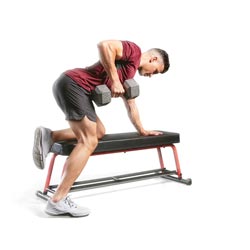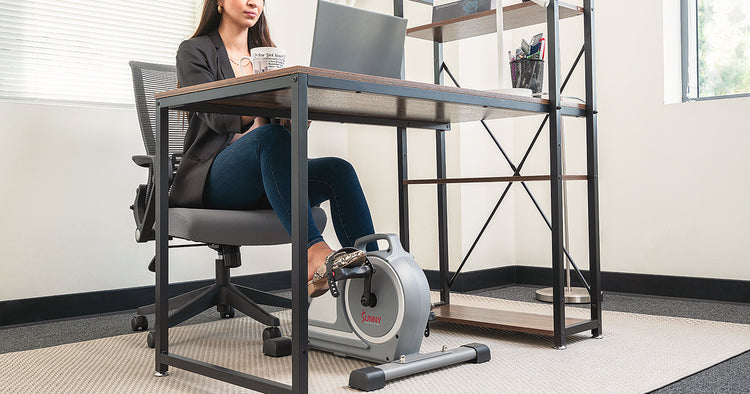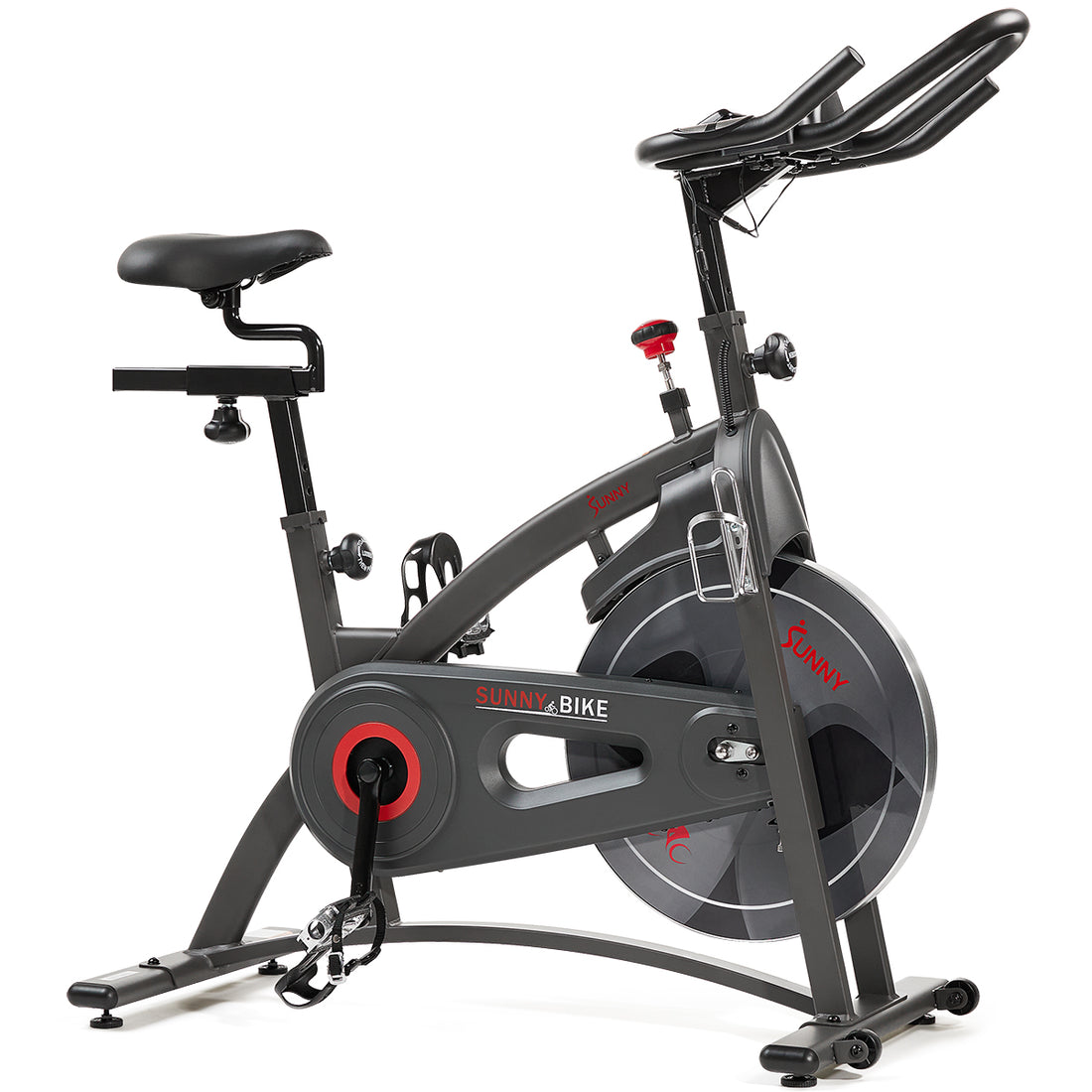While we all know exercise has many benefits for physical health and weight loss, it has many other advantages, such as improving work productivity. In addition to helping us think more clearly and strengthen creativity, exercise provides several benefits that could make it easier to reach our work-related goals and excel at tasks that could lead to that promotion you’ve worked hard for. So, let's take a closer look at how working out improves workplace productivity and its benefits.
The Benefits of Exercise on Work Productivity
Although it may seem that working out has purely physical benefits, this is not the case. In fact, getting in a bit of exercise on a daily basis can also help improve your work productivity. So, whether you take a brisk daily walk, head out for a jog, or hit the gym, let's look at how this movement can boost your productivity:
Improves Mental Health
Our ability to work productively can increase when we are in good mental health (1). By taking some time to exercise, whether it’s a few minutes to half an hour each day, you stimulate serotonin release by the brain (2). Serotonin is a chemical messenger that helps stabilize your mood and alleviates feelings of depression and anxiety. By increasing your serotonin levels, you can more readily handle stress and deal with the task at hand or your co-workers with ease.
Improves Mood
Since exercising stimulates the production and release of serotonin, a chemical that promotes a positive mood and emotional response, working out can improve your mood. Furthermore, many people who exercise regularly may tell you that they do it to help melt away the stress of the day, making it a great way to work off the tensions or strain of the day.
Improves Cognitive Function
According to the American Council on Exercise, exercise triggers the release of a protein called BDNF (brain-derived neurotrophic factor) (3), which stimulates cognitive function. When exercising, the heart works harder, pumping more oxygenated blood to the brain; making us more aware and able to focus on the tasks at hand. Feeling focused and alert makes it easier to be more productive to get the work done.
Helps You Stay Organized
Another benefit of having raised levels of BDNF is that it allows you to stay focused and tackle tasks as they crop up, making it easier to stay organized and in control. Further, by setting a workout plan for yourself, you develop a healthy routine, setting yourself up to stay more organized and on time.
Improves Concentration
In addition to improving cognitive function, working out improves concentration, so you can tackle the tasks at hand efficiently and without your mind wandering. Besides increasing the levels of blood, oxygen, and glucose in the brain (4), which boosts concentration (5), exercise is also recognized as aiding in forming new brain cells (6), which can create an increase in the area of the brain responsible for memory and learning functions.
Reduces Fatigue
One of the contributing factors that inhibit productivity is fatigue. In contrast to feeling sleepy or drowsy, fatigue is that feeling you get when you have a complete lack of energy and feel exhausted. In this case, attempting to get through your workload can feel like trying to wade through quicksand, as though you'll never get things done.
However, when exercising, the flow of blood and oxygen to the brain increases, and so do your energy levels (7). As a result, you reduce fatigue and have the energy to approach the tasks that come your way. You may find that you get them done much quicker too.
Improves Sleep
So, if working out reduces fatigue, does it stop you from sleeping too? No! In fact, it's quite the opposite. Although exercise produces energy, John Hopkins Medicine claims that those who exercise during the day sleep better and fall asleep quicker at night (8). Further, aerobic exercise helps improve the quality of your deep sleep.
As a result, you wake up feeling more rested and with a clear mind. With a great night's rest, the work you need to get through that day feels less overwhelming, and getting through it, simpler.
Lowers Stress
Besides increasing serotonin levels to bolster your mood and emotional wellbeing, exercise helps alleviate stress (9). While improving your mood, working out enables you to blow off steam, whether you take out your frustrations on a boxing bag or mull things over while taking a jog. Not only is this a great way to work through the negative emotions, but it also helps bring clarity to a stressful situation, making it simpler to see the solution or get a sense of calm. Although exercise won't solve the problem at hand, it can help minimize the stress, making it easier to complete the job.
Further, working out also can help reduce physical stress, such as a stiff neck or shoulders, or alleviate a tension headache (10) that can hinder productivity.
Assists with Time Management
When you are alert, focused, and able to concentrate, keeping to schedule becomes simple and allows you to manage your time more effectively. Instead of dragging your feet through a task and procrastinating, you'll feel more able to get through each assignment efficiently so that you can move on to the next one. Since working out provides improved cognitive function and concentration, managing your time and, by default, your productivity becomes a breeze.
Conclusion
Although working out may seem like time lost or an activity you just don't have time for due to your workload, you may want to think again. Taking even a few minutes each day to get in some exercise can boost your cognitive function, memory, concentration, mood, and lower fatigue. As a result, you'll be able to tackle any challenge with enthusiasm and energy, stay organized, and better manage your time.
So, by exercising, be it walking, gyming, or jogging, you can improve your productivity and chances of receiving a promotion.
(1) https://www.mentalhealth.org.uk/publications/how-support-mental-health-work
(2) https://jissn.biomedcentral.com/articles/10.1186/s12970-016-0155-6
(3) https://www.acefitness.org/resources/everyone/blog/7116/your-brain-on-exercise-the-neuroscience-behind-a-good-workout/
(4) https://www.ncbi.nlm.nih.gov/pmc/articles/PMC1474763/
(5) https://hms.harvard.edu/news-events/publications-archive/brain/sugar-brain
(6) https://www.ncbi.nlm.nih.gov/pmc/articles/PMC5808288/
(7) https://www.health.harvard.edu/exercise-and-fitness/does-exercise-really-boost-energy-levels
(8) https://www.hopkinsmedicine.org/health/wellness-and-prevention/exercising-for-better-sleep
(9) https://adaa.org/understanding-anxiety/related-illnesses/other-related-conditions/stress/physical-activity-reduces-st
(10) https://www.healthline.com/health/tension-in-neck-and-shoulders-from-anxiety#tips

Mariam Simmons is a fashion enthusiast and Content Manager at Alpine Swiss. She loves experimenting with different niches, and, with over a decade of writing experience, her main goal in creating content is to ensure readers learn something useful and provide value instead of noise.






















